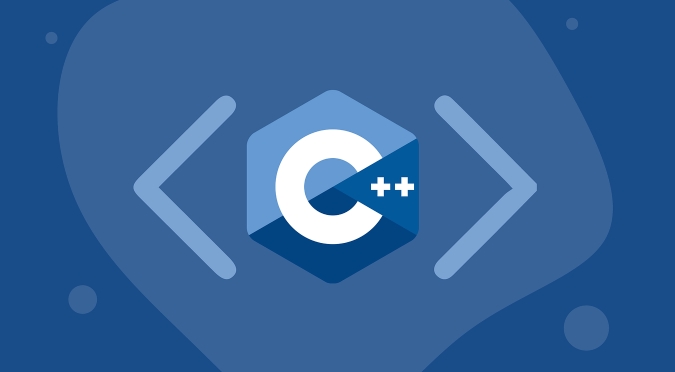How to generate a UUID/GUID in C ?
There are three effective ways to generate UUIDs or GUIDs in C: 1. Use the Boost library, which provides multi-version support and is simple to interface; 2. Manually generate Version 4 UUIDs suitable for simple needs; 3. Use platform-specific APIs (such as Windows' CoCreateGuid), without third-party dependencies. Boost is suitable for most modern projects, manual implementation is suitable for lightweight scenarios, and platform API is suitable for enterprise environments.

If you need to generate a UUID or GUID in C , there's no built-in standard library support for it prior to C 20, and even then, it's limited. So, most developers either use external libraries or implement their own solutions based on known UUID versions.

Here's how you can do it effectively depending on your needs and environment.

Use a Library Like boost::uuids
Boost is one of the most common and reliable ways to generate UUIDs in C . It supports multiple UUID versions and provides clean APIs.
- Install Boost (if not already installed) via package managers like vcpkg or directly from source.
- Include
<boost></boost>and<boost></boost>. - Use the random generator like this:
#include <boost/uuid/uuid.hpp>
#include <boost/uuid/uuid_generators.hpp>
#include <boost/uuid/uuid_io.hpp>
#include <iostream>
int main() {
boost::uuids::uuid uuid = boost::uuids::random_generator()();
std::cout << uuid << std::endl;
return 0;
}This gives you a Version 4 UUID by default. If you need other versions, Boost has support for things like name-based (Version 3 or 5) and time-based (Version 1) UUIDs as well.

Generate Manually for Simple Needs
If you don't want to pull in a big library like Boost, you can generate a basic Version 4 UUID manually.
A Version 4 UUID looks like this: xxxxxxxx-xxxx-4xxx-yxxx-xxxxxxxxxxxx
Where:
- The third group starts with "4" (indicating version 4).
- The fourth group starts with "8", "9", "a", or "b".
You can create a random string following that pattern using something like:
#include <random>
#include <string>
#include <iostream>
std::string generate_uuid_v4() {
static std::random_device rd;
static std::mt19937 gen(rd());
static std::uniform_int_distribution<> dis(0, 15);
static std::uniform_int_distribution<> dis2(8, 11);
std::string uuid = "xxxxxxx-xxxx-4xxx-yxxxx-xxxxxxxxxxxxxxxxx";
for (int i = 0; i < uuid.size(); i) {
if (uuid[i] == 'x') {
int r = dis(gen);
uuid[i] = "0123456789abcdef"[r];
} else if (uuid[i] == 'y') {
int r = dis2(gen);
uuid[i] = "89ab"[r - 8];
}
}
return uuid;
}
int main() {
std::cout << generate_uuid_v4() << std::endl;
return 0;
}This isn't cryptographically secure but works fine for simple applications.
Use Platform-Specific APIs (Windows Example)
On Windows, you can use the native API CoCreateGuid , which is part of the COM library.
Steps:
- Include
<objbase.h> - Link against
ole32.lib - Call
CoCreateGuid()to fill aGUIDstruct
Example:
#include <objbase.h>
#include <iostream>
std::string guid_to_string(const GUID &guid) {
char guidStr[37];
sprintf_s(guidStr,
"X- X- X- X- X X- XXXXXX",
guid.Data1, guid.Data2, guid.Data3,
guid.Data4[0], guid.Data4[1],
guid.Data4[2], guid.Data4[3],
guid.Data4[4], guid.Data4[5],
guid.Data4[6], guid.Data4[7]);
return std::string(guidStr);
}
int main() {
CoInitialize(nullptr);
GUID guid;
CoCreateGuid(&guid);
std::cout << guid_to_string(guid) << std::endl;
CoUninitialize();
return 0;
}This method avoids third-party dependencies and uses OS-level tools, which can be helpful in enterprise environments.
Summary of Options
- Boost : Full-featured, easy to use, supports multiple UUID versions.
- Manual generation : Lightweight, good for basic needs, not secure.
- Platform-specific APIs : No external dependencies, but not portable.
Depending on your project setup and requirements, pick the method that fits best. For most modern projects, Boost is the easiest and safest bet unless you have strict dependency limits.
Basically that's it.
The above is the detailed content of How to generate a UUID/GUID in C ?. For more information, please follow other related articles on the PHP Chinese website!

Hot AI Tools

Undress AI Tool
Undress images for free

Undresser.AI Undress
AI-powered app for creating realistic nude photos

AI Clothes Remover
Online AI tool for removing clothes from photos.

Clothoff.io
AI clothes remover

Video Face Swap
Swap faces in any video effortlessly with our completely free AI face swap tool!

Hot Article

Hot Tools

Notepad++7.3.1
Easy-to-use and free code editor

SublimeText3 Chinese version
Chinese version, very easy to use

Zend Studio 13.0.1
Powerful PHP integrated development environment

Dreamweaver CS6
Visual web development tools

SublimeText3 Mac version
God-level code editing software (SublimeText3)

Hot Topics
 How to pass a function as a parameter in C ?
Jul 12, 2025 am 01:34 AM
How to pass a function as a parameter in C ?
Jul 12, 2025 am 01:34 AM
In C, there are three main ways to pass functions as parameters: using function pointers, std::function and Lambda expressions, and template generics. 1. Function pointers are the most basic method, suitable for simple scenarios or C interface compatible, but poor readability; 2. Std::function combined with Lambda expressions is a recommended method in modern C, supporting a variety of callable objects and being type-safe; 3. Template generic methods are the most flexible, suitable for library code or general logic, but may increase the compilation time and code volume. Lambdas that capture the context must be passed through std::function or template and cannot be converted directly into function pointers.
 What is a POD (Plain Old Data) type in C ?
Jul 12, 2025 am 02:15 AM
What is a POD (Plain Old Data) type in C ?
Jul 12, 2025 am 02:15 AM
In C, the POD (PlainOldData) type refers to a type with a simple structure and compatible with C language data processing. It needs to meet two conditions: it has ordinary copy semantics, which can be copied by memcpy; it has a standard layout and the memory structure is predictable. Specific requirements include: all non-static members are public, no user-defined constructors or destructors, no virtual functions or base classes, and all non-static members themselves are PODs. For example structPoint{intx;inty;} is POD. Its uses include binary I/O, C interoperability, performance optimization, etc. You can check whether the type is POD through std::is_pod, but it is recommended to use std::is_trivia after C 11.
 What is the mutable keyword in C ?
Jul 12, 2025 am 03:03 AM
What is the mutable keyword in C ?
Jul 12, 2025 am 03:03 AM
In C, the mutable keyword is used to allow the object to be modified, even if the object is declared as const. Its core purpose is to maintain the logical constants of the object while allowing internal state changes, which are commonly found in cache, debug counters and thread synchronization primitives. When using it, mutable must be placed before the data member in the class definition, and it only applies to data members rather than global or local variables. In best practice, abuse should be avoided, concurrent synchronization should be paid attention to, and external behavior should be ensured. For example, std::shared_ptr uses mutable to manage reference counting to achieve thread safety and const correctness.
 What is memory alignment and why is it important in C ?
Jul 13, 2025 am 01:01 AM
What is memory alignment and why is it important in C ?
Jul 13, 2025 am 01:01 AM
MemoryalignmentinC referstoplacingdataatspecificmemoryaddressesthataremultiplesofavalue,typicallythesizeofthedatatype,whichimprovesperformanceandcorrectness.1.Itensuresdatatypeslikeintegersordoublesstartataddressesdivisiblebytheiralignmentrequiremen
 What is an abstract class in C ?
Jul 11, 2025 am 12:29 AM
What is an abstract class in C ?
Jul 11, 2025 am 12:29 AM
The key to an abstract class is that it contains at least one pure virtual function. When a pure virtual function is declared in the class (such as virtualvoiddoSomething()=0;), the class becomes an abstract class and cannot directly instantiate the object, but polymorphism can be realized through pointers or references; if the derived class does not implement all pure virtual functions, it will also remain an abstract class. Abstract classes are often used to define interfaces or shared behaviors, such as designing Shape classes in drawing applications and implementing the draw() method by derived classes such as Circle and Rectangle. Scenarios using abstract classes include: designing base classes that should not be instantiated directly, forcing multiple related classes to follow a unified interface, providing default behavior, and requiring subclasses to supplement details. In addition, C
 How to generate a UUID/GUID in C ?
Jul 13, 2025 am 02:35 AM
How to generate a UUID/GUID in C ?
Jul 13, 2025 am 02:35 AM
There are three effective ways to generate UUIDs or GUIDs in C: 1. Use the Boost library, which provides multi-version support and is simple to interface; 2. Manually generate Version4UUIDs suitable for simple needs; 3. Use platform-specific APIs (such as Windows' CoCreateGuid), without third-party dependencies. Boost is suitable for most modern projects, manual implementation is suitable for lightweight scenarios, and platform API is suitable for enterprise environments.
 C vs Python performance
Jul 13, 2025 am 01:42 AM
C vs Python performance
Jul 13, 2025 am 01:42 AM
C is usually faster than Python, especially in compute-intensive tasks. 1.C is a compiled language that directly runs machine code, while Python executes while interpreting and executing, which brings additional overhead; 2.C determines the type during compilation and manages memory manually, which is conducive to CPU optimization, and Python dynamic typing and garbage collection increase burden; 3. It is recommended to be used for high-performance scenarios such as game engines and embedded systems. Python is suitable for data analysis and rapid development scenarios with priority efficiency; 4. Performance testing is recommended to use time tools, eliminate I/O interference, and average values multiple times to obtain accurate results.
 Understanding move assignment operator in C
Jul 16, 2025 am 02:20 AM
Understanding move assignment operator in C
Jul 16, 2025 am 02:20 AM
ThemoveassignmentoperatorinC isaspecialmemberfunctionthatefficientlytransfersresourcesfromatemporaryobjecttoanexistingone.ItisdefinedasMyClass&operator=(MyClass&&other)noexcept;,takinganon-constrvaluereferencetoallowmodificationofthesour







